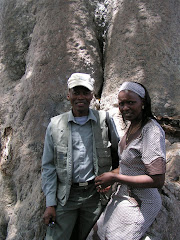Civil Registration is based on International commitments that have been made to safeguard the rights and well-being of children worldwide.
Welcome on borad and learn more about civil registration..
Strengthening civil registration systems is a government responsibility: birth registration is a child’s human right.
Most National plans of action (NPA) for orphans and vulnerable children do not explicitly acknowledge that birth registration is a human right, however. No NP has recognized the value of death registration in protecting children from property and inheritance loss, which is a human rights and livelihoods issue.
International Policy Commitments on Civil Registration
• Article 7 of the Convention on the Rights of the Child gives every child the right to be registered at birth by the state within whose jurisdiction the child is born.
• The 2002 World Fit for Children reaffirms governments’ commitment to ensure the birth registration for all children.
• The 2004 Global Framework for the protection, care and support of Orphans and Vulnerable Children Living in a World with HIV and AIDS calls for access for orphans and vulnerable children to essential services, including birth Registration, to be ensured.
• The 2006 Global Partners Forum identified civil registration to be one of the strategic areas of importance to building a comprehensive response for children affected by HIV/AIDS.
Poverty, exacerbated by HIV and AIDS, hinders the demand by parents to register their children, as meagre finances are rather spent on education and health requirements, including ART, clothing, nutrition, and shelter.
More often civil registration systems are centralized, impeding the access of those that have to travel long distances. Indirect costs of obtaining a birth or death certificate usually outweigh the direct costs. However, urbanization does not significantly impact on increased registration rates.
Tentative recommendations for scaling up strong civil registration systems
1. A decentralized community-based approach to registering vital data and disturbing certificates can reduce or nullify indirect costs. At the same time, the community collectors sensitize and raise the awareness of individual households and community members to the importance of birth or death registration. Registering data at the district or provincial level allows local government to identify and monitor orphaned and vulnerable children, increasing the efficiency of the delivery of services to these people.
2. Specific national legislations and policies pertaining to civil registration need to be developed and implemented, recognizing the importance of such systems on the state’ s responsibility to monitor its citizens and provide them with comprehensive basic services, including appropriate HIV-related prevention, treatment, support and care programmes for adults and children protection should be highlighted, and especially for orphans access to property and inheritance rights.
3. Birth and death registration awareness should be incorporated and integrated into HIV and AIDS programming , such as adult’s and children’s voluntary counseling and testing , PMTCT and ante and post-natal programmes, youth and children’s life skills courses ,HIV and AIDS support groups, and children’s and youth’s knowledge and practice in relation to health, sexuality and HIV.
Subscribe to:
Post Comments (Atom)











No comments:
Post a Comment